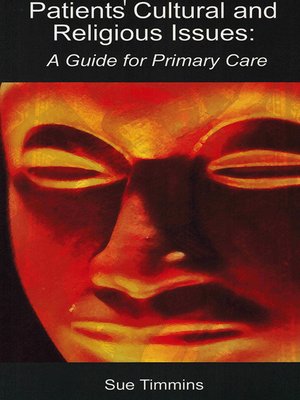
Sign up to save your library
With an OverDrive account, you can save your favorite libraries for at-a-glance information about availability. Find out more about OverDrive accounts.
Find this title in Libby, the library reading app by OverDrive.



Search for a digital library with this title
Title found at these libraries:
| Library Name | Distance |
|---|---|
| Loading... |
People from different countries and cultures, and who follow religions other than Christianity, may have particular needs relating to the provision of health care. Every patient is entitled to a delivery of care which is sensitive to their needs, and which allows them to retain dignity. The Patient's Charter underlines this entitlement. The White Paper 'The New NHS: Modern, Dependable' subsequently stated the intention that everyone in the nation will have 'fair access to health services in relation to people's needs, irrespective of geography, class, ethnicity, age or sex.' It further stated the aim that the 'renewed NHS' will deliver 'a personal service which is sensitive and responsive to the needs of individual patients'. It is therefore important that health care professionals have access to resources which will help them to increase their awareness of cultural and religious issues, and how this information may improve their delivery of care to their patients. The guide will assist everyone working in primary care to recognise and value the differences which may be encountered when non-indigenous patients come to the surgery for registration. Other reading material, much of which has informed the compilation of this guide and which may be of interest to the reader, is listed at the back of this book. In addition, a blank page has been included at the end of each section, where notes and comments can also be written if desired.







